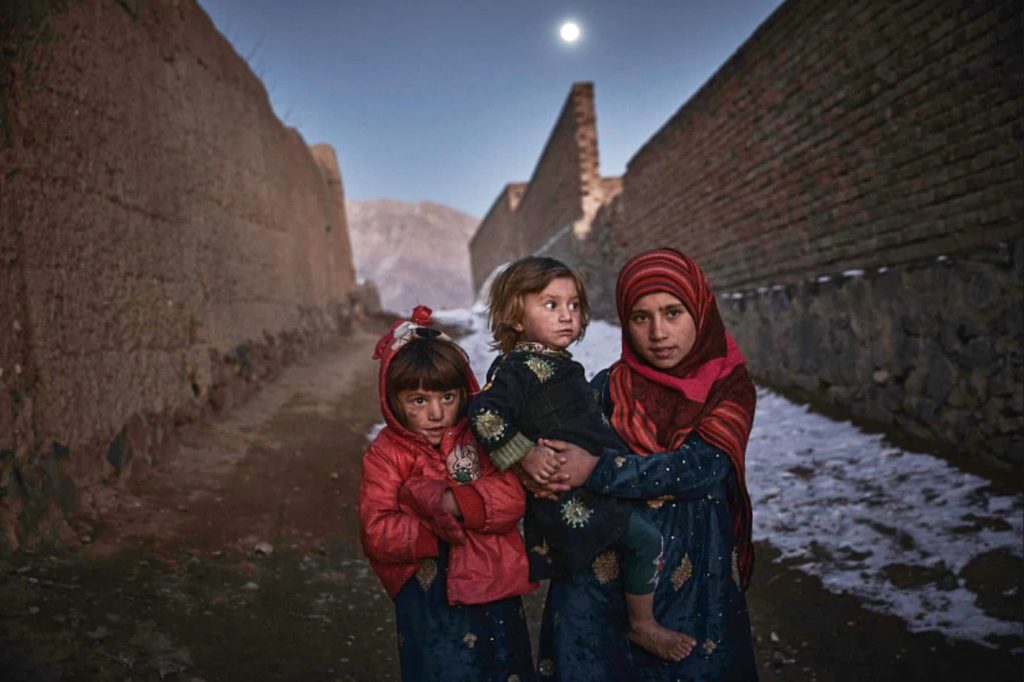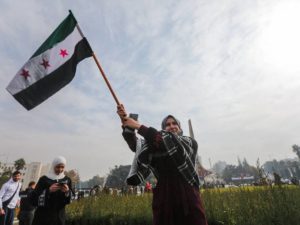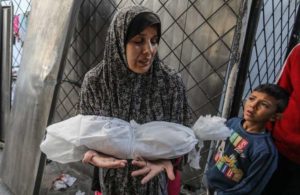
United Against Inhumanity (UAI) is outraged by the callous freezing of US $9.1 billion worth of assets, belonging to the people of Afghanistan, that are held in US and European banks. UAI calls for the immediate release of the assets belonging to Afghanistan so that a catastrophic collapse of the economy and untold misery for Afghans can be averted.
The Taliban take-over in Kabul last August, after the dramatic collapse of the Western-backed government, sent shock waves through Afghanistan and the wider world.
No country has formally recognized the de facto authorities of the so-called ‘Islamic Emirate of Afghanistan’. There is broad concern about the Taliban’s human rights record, their interpretation of Sharia law, and their previous brutal rule from Kabul 20 years ago. Attacks on women, religious and ethnic minorities, as well as the media, are obliging Afghans to flee their homes and seek safety elsewhere. Afghans are also on the move in a desperate bid to secure a means of survival for themselves and their families as a harsh combination of winter, poverty, drought, and hunger takes its toll.
Freezing assets exacerbates catastrophe. The crisis in Afghanistan cannot be divorced from the freezing of US$7 billion of Afghanistan’s national reserves held in the US Federal Reserve bank and some US$2.1 billion that are in European banks and elsewhere. These assets belong to the people of Afghanistan. They constitute the reserves of Da Afghanistan Bank (DAB), the country’s central bank.
The essential role of the central bank. The DAB has benefitted from significant institutional strengthening since it was re-structured in 2004; it operates in line with its legal, constitutional framework that includes independent audit reviews. The freezing of its reserves now paralyzes the functioning of the bank and its role in securing the viability of the banking sector. Regular Afghan citizens, such as those employed in health and education, are not being paid and cannot access their life savings. The liquidity crisis, coupled with the abrupt cessation of foreign aid and spiraling inflation, has crippled the economy. Many essential services have broken down as there is no access to cash to pay salaries or routine purchases. This, in turn, has resulted in alarming levels of unemployment, loss of livelihoods, and the inability of most Afghans to afford essentials such as food, fuel and shelter. Preventing the DAB from fulfilling its essential role in the Afghan economy has already resulted in widespread disruption in the banking and commercial sectors. Such a situation will also severely hinder humanitarian activities, further exacerbate profound levels of poverty, and accelerate population flows across international borders.
The US Executive Order. President Biden’s Executive Order of 11 February 2022 adds insult to injury. It threatens the lives of millions. By ring-fencing half of Afghanistan’s US$7 billion foreign assets in the US for the purpose of compensating the families of 9/11 victims, the people of Afghanistan who are the rightful owners of the country’s sovereign wealth are not only robbed of their resources, they are penalized for the shocking 9/11 attacks in which they had no part. They are effectively made responsible for the arrival of the Taliban in Kabul.
Collective punishment. The US has spent over 2 trillion US dollars for its intervention in Afghanistan. It can easily find resources for the compensation of 9/11 victims – which we support – without sequestering Afghanistan’s reserves. The collective punishment of the people of Afghanistan who have no responsibility for the 9/11 attacks or for the debacle leading to the return of the Taliban, is morally reprehensible, economically devastating and politically reckless.
UAI is calling for President Biden and European leaders to unblock all the frozen funds whether held by the US Federal Reserve Bank or by European banks. Specifically, UAI asks President Biden to revoke his Executive Order of 11 February, and as a first step, to authorize the release of US$150 million monthly to the DAB to fulfil its essential role in creating liquidity in the economy. These releases can be monitored by international auditors with an option to terminate in the event of misuse by the de facto authorities. The DAB Audit Committee continues to operate and the DAB retains the capability to deliver on its responsibilities.
UAI also asks for the release of the printed 8.5 million of the local currency, the afghani, that are presently in Poland and not being delivered to Afghanistan given fears of falling afoul of international sanctions. Unless these measures are taken forthwith, the Afghan economy will continue to stumble, the afghani that has already lost much of its value, will depreciate further, prices will continue to rise, and the misery of the Afghan people will surpass anything that has been seen in 40 years of war.
The consequences of inaction will be swift, severe and deadly. The US Office of Foreign Assets Control (OFAC) General License of 25 February 2022 allows for some welcome flexibility in international money transfers and commercial activity but does not address the issue of the frozen reserves. Without access to the reserves Afghans will continue to suffer from double digit inflation and economic stagnation. If no liquidity is injected into the economy, Afghanistan is set to default on many international contracts. It will not be able, for example, to pay for the electricity it is importing from abroad. The reserves of private Afghan commercial banks are currently held in international banks. If they are not released, the savings of Afghans and the funds belonging to private entrepreneurs will be lost. The DAB itself may cease to function. Deliberate damage to the economy will be unprecedented. Unlike 20 years ago, Afghanistan is now part of a globalized economy that was greatly dollarized this past two decades.
Ultimately, institutional collapse and economic implosion will require decades of recovery notwithstanding the tremendous investment made in Afghanistan since 2001. If civil servants, many of whom were already not being paid before August 2021 leave the country, rebuilding institutions that are again staffed with capable personnel, will be a mammoth task. When major foreign companies close because they can no longer operate as the market economy and the banking sector cease to function, there is a high probability they will not return. Similarly, the humanitarian sector faces an uphill struggle to maintain essential life-saving activities for the most vulnerable and impoverished. Humanitarian action in any setting is not a substitute for a functioning economy. The notion that increased humanitarian support will address the consequences of a collapsed economy and alarming levels of impoverishment is preposterous.
The human right to food is nothing but a mirage in Afghanistan. Food security levels have plunged at a rate not seen elsewhere in such a short period. Further deterioration, which should be expected if immediate remedial action is not taken, could potentially tip the country into widespread famine conditions – something not seen before in Afghanistan’s 40 years of conflict. With the collapse of government health services and the difficult operating environment for NGOs, the health situation of the population will deteriorate with a rapid expansion of communicable disease and mortality, including from COVID, as well as cholera which is spreading quickly into multiple provinces.
Life in Afghanistan will become even more brutal and untenable for the bulk of the population. The UN projects that 97% of Afghans could be pushed below the poverty line in the coming months. Many will attempt to leave. Waves of distressed, on-the-move Afghans will depart for neighbouring states and elsewhere; some will attempt to reach Fortress Europe. Unlike the August 2021 evacuees, they will not be welcomed. Such population flows will further erode the battered international asylum regime and fuel xenophobic tendencies.
This totally avoidable, and manufactured, man-made disaster does not have to persist. American and European politicians must take the ethical and life-saving decision to stop punishing the people of Afghanistan who did not vote for the de facto authorities or the catastrophic crisis that threatens their lives.











